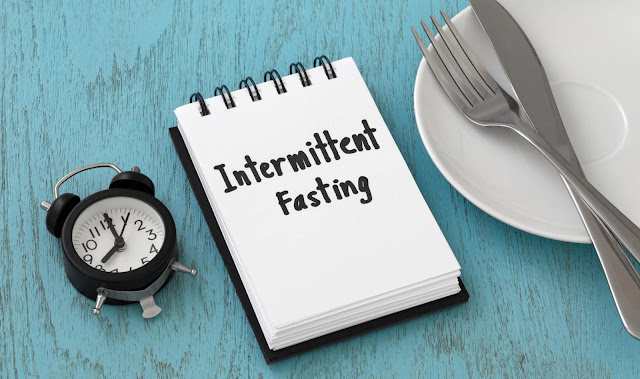Embarking on a fat loss journey can often feel like navigating through a maze of fad diets, trendy workouts, and quick fixes that promise rapid results but rarely deliver long-term success.
Introduction
The pursuit of fat loss is a journey that goes beyond mere aesthetics. It's about fostering a healthier relationship with your body, understanding its unique needs, and nurturing it towards a state of optimum health and well-being.
For women, this path is often laden with misconceptions and generalized advice that fails to take into account the complexity of female physiology.
This guide aims to illuminate a holistic and sustainable approach to fat loss, tailored specifically for women, emphasizing strategies that honor the body's natural rhythms and needs.
1. Redefining Your Sleep Strategy for Fat Loss
Sleep is the unsung hero of fat loss, playing a pivotal role in regulating metabolism, appetite, and stress levels—key factors that influence weight management. Research consistently shows that inadequate sleep can disrupt hormonal balance, leading to increased hunger and decreased satiety, thereby sabotaging your fat loss efforts. Moreover, sleep deprivation has been linked to decreased glucose tolerance and insulin sensitivity, further complicating the body's ability to manage weight effectively.
Practical Tips:
- Establish a Consistent Sleep Schedule: Aim for 7-9 hours of quality sleep per night, going to bed and waking up at the same times daily.
- Create a Restful Environment: Ensure your bedroom is conducive to sleep—cool, dark, and quiet—and free from electronic distractions.
- Wind Down Before Bed: Develop a relaxing pre-sleep routine, such as reading or gentle stretching, to signal to your body that it's time to wind down.
2. The Untapped Potential of Strength Over Cardio
While cardio exercises are often touted as the go-to option for fat loss, strength training offers numerous advantages, particularly for women. Building muscle mass not only enhances your physique but also elevates your resting metabolic rate, meaning you burn more calories even when not exercising. Additionally, strength training has been shown to improve bone density, reduce the risk of chronic diseases, and boost mental health.
Emerging Trend:
Functional strength training, which involves exercises that mimic everyday activities, is gaining popularity for its practical benefits and effectiveness in building lean muscle mass. Incorporating movements such as squats, lunges, and push-ups can make day-to-day tasks easier and more efficient, while also contributing to a toned and healthy physique.
3. Nutrition Beyond Calories: Micronutrients Matter
When it comes to fat loss, the quality of calories consumed is just as important as the quantity. Micronutrients—vitamins, minerals, and other compounds—play critical roles in overall health, metabolism, and the body's ability to lose fat. A diet rich in micronutrients can improve bodily functions, enhance energy levels, and support hormonal balance, all of which contribute to more effective fat loss.
Key Micronutrients for Fat Loss:
- Iron: Essential for transporting oxygen in the blood, supporting energy levels, and aiding in metabolism.
- Vitamin D: Linked to improved mood and immune function, as well as the potential to support fat loss when combined with calcium.
- Magnesium: Involved in over 300 enzymatic reactions in the body, including those that regulate blood sugar and insulin levels.
Cutting-Edge Approach:
Incorporating a wide variety of colorful fruits and vegetables, lean proteins, whole grains, and healthy fats into your diet can ensure you're getting a broad spectrum of micronutrients. Consider using a food diary app to track not just calories but also micronutrient intake, helping you identify any gaps in your diet.
4. The Role of Gut Health in Weight Management
The gut microbiome—comprising billions of bacteria living in the digestive system—has a profound impact on health, metabolism, and weight. Emerging research suggests that the composition of gut bacteria can influence body weight, fat distribution, and how the body processes food. A healthy, diverse gut microbiome can aid in efficient digestion, reduce inflammation, and even influence cravings and mood, all of which are beneficial for sustainable fat loss.
Strategies to Enhance Gut Health:
- Probiotic-Rich Foods: Incorporate foods such as yogurt, kefir, sauerkraut, and kombucha into your diet to boost beneficial bacteria.
- Prebiotic Foods: Foods high in dietary fiber, such as garlic, onions, bananas, and oats, feed healthy gut bacteria and support their growth.
- Diversity in Diet: Eating a wide range of foods can promote a diverse microbiome, which is associated with better health and weight management.
5. Intermittent Fasting: Is It Right for You?
Intermittent fasting (IF) involves cycling between periods of eating and fasting, with various approaches ranging from 16-hour fasts to 24-hour fasts, a few times a week. IF can help reduce calorie intake, improve metabolic health, and may lead to significant fat loss over time. However, it's important to consider individual health, lifestyle, and how fasting may impact hormonal balance, particularly in women.
Balanced View on IF: While IF has potential benefits, it's not suitable for everyone. Women, especially those with hormonal imbalances, a history of eating disorders, or high-stress levels, should approach IF with caution and potentially seek advice from a healthcare professional before starting.
Tips for a Healthy Approach to IF:
- Start slowly, with shorter fasting periods, and gradually increase as your body adapts.
- Focus on nutrient-dense foods during eating windows to ensure you're meeting your body's needs.
- Listen to your body's signals. If you experience negative symptoms, such as fatigue, irritability, or disrupted menstrual cycles, reconsider if IF is right for you.
6. Harnessing the Power of Stress Management
Effective Stress-Reduction Techniques:
- Mindfulness and Meditation: Practices like mindfulness meditation have been shown to reduce stress levels and improve emotional regulation, helping to curb emotional eating.
- Regular Physical Activity: Exercise is a powerful stress reliever. Even activities such as walking or yoga can significantly lower cortisol levels.
- Adequate Sleep: Prioritizing sleep is crucial for stress management. Lack of sleep can exacerbate stress and hinder your fat loss journey.
7. The Myth of the Perfect Diet: Customization is Key
Strategies for Dietary Customization:
- Listen to Your Body: Pay attention to how different foods make you feel. Some may provide energy and satiety, while others may cause bloating or cravings.
- Experiment with Elimination: If you suspect certain foods aren't agreeing with you, try eliminating them for a period and monitor how your body responds.
- Seek Professional Guidance: A registered dietitian or nutritionist can provide personalized advice based on your health status, goals, and dietary preferences.
8. Hydration: The Unsung Hero of Fat Loss
Proper hydration is critical for overall health and can be particularly beneficial for fat loss. Water helps to regulate body temperature, digest food, and transport nutrients. Drinking sufficient water can also aid in appetite control and metabolism.Tips for Increasing Water Intake:
- Carry a Water Bottle: Having water on hand at all times makes it easier to drink throughout the day.
- Set Reminders: Use apps or set alarms as reminders to drink water at regular intervals.
- Flavor Your Water: If you find plain water unappealing, try adding slices of fruits or herbs like mint or cucumber for a refreshing twist.
9. Smart Snacking for Sustained Energy and Metabolism
Smart snacking can support fat loss by maintaining energy levels and preventing overeating at meal times. The key is choosing snacks that are rich in nutrients, provide protein and fiber, and contain healthy fats to keep you feeling satisfied.Examples of Smart Snacks:
- Greek Yogurt with Berries: A great source of protein, calcium, and antioxidants.
- Almonds or Walnuts: Nuts are packed with healthy fats, protein, and fiber.
- Sliced Apple with Almond Butter: Offers a satisfying mix of sweetness and creaminess, along with fiber and healthy fats.
10. Active Recovery and Its Role in Weight Loss
Active recovery days are essential for sustainable fat loss, allowing your body to rest and repair while still staying lightly active. Activities like walking, gentle yoga, or swimming can keep you moving without the intensity of regular workouts, aiding in recovery and preventing burnout.Benefits of Active Recovery:
- Enhances Blood Circulation: Helps to clear toxins and reduce muscle soreness.
- Maintains Consistent Exercise Habit: Keeps you in the routine of moving your body regularly.
- Reduces Risk of Injury: By preventing overtraining and allowing muscles to properly recover.
Conclusion
Sustainable fat loss for women involves more than just diet and exercise; it requires a holistic approach that considers sleep, stress management, hydration, and the uniqueness of the female body. By adopting these strategies, you can create a balanced, enjoyable lifestyle that supports your fat loss goals without compromising your health or well-being.Embarking on a fat loss journey is a deeply personal and transformative process. Remember, patience and consistency are key. Celebrate your progress, learn from the setbacks, and most importantly, embrace the journey toward a healthier, happier you.











